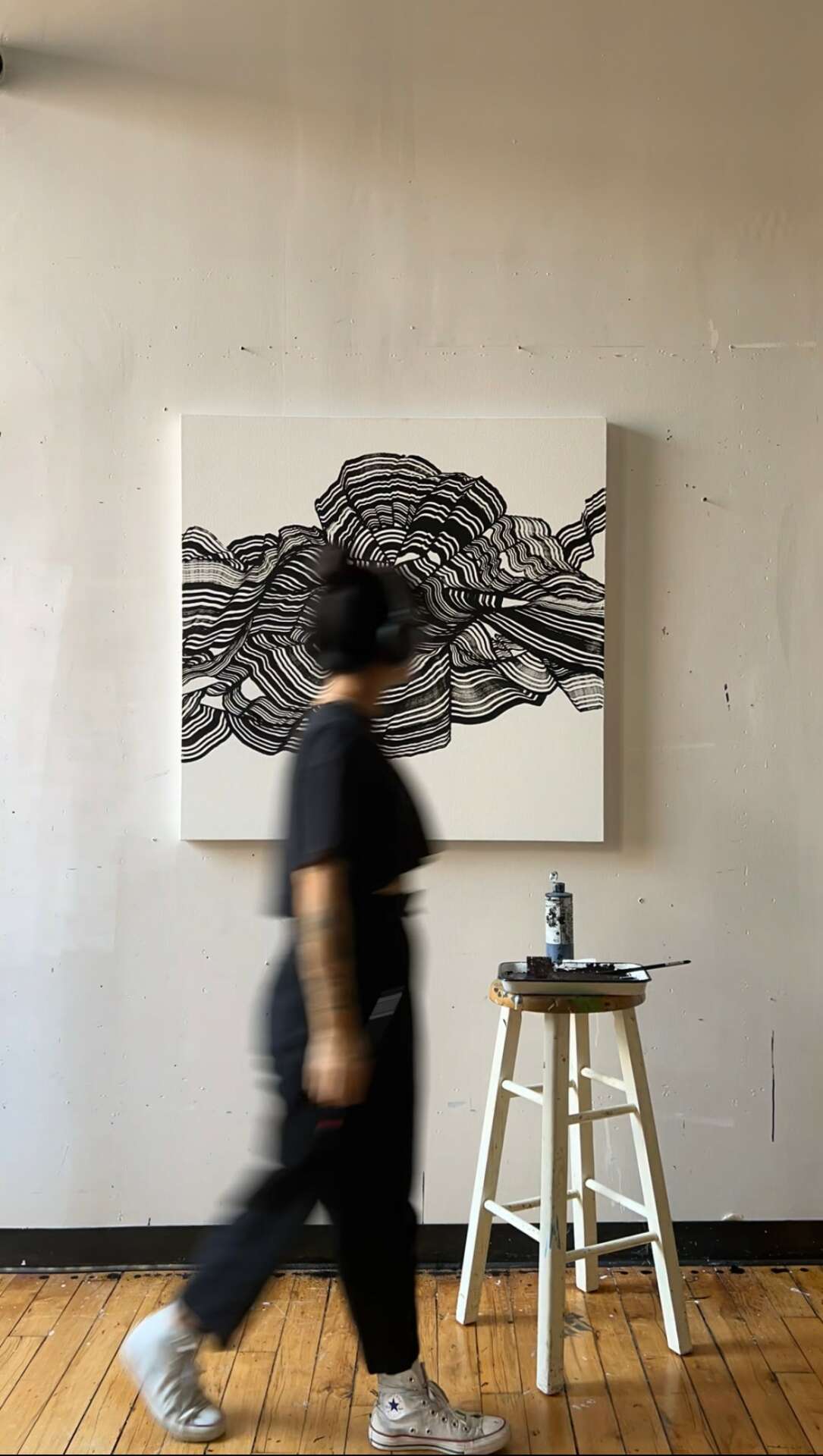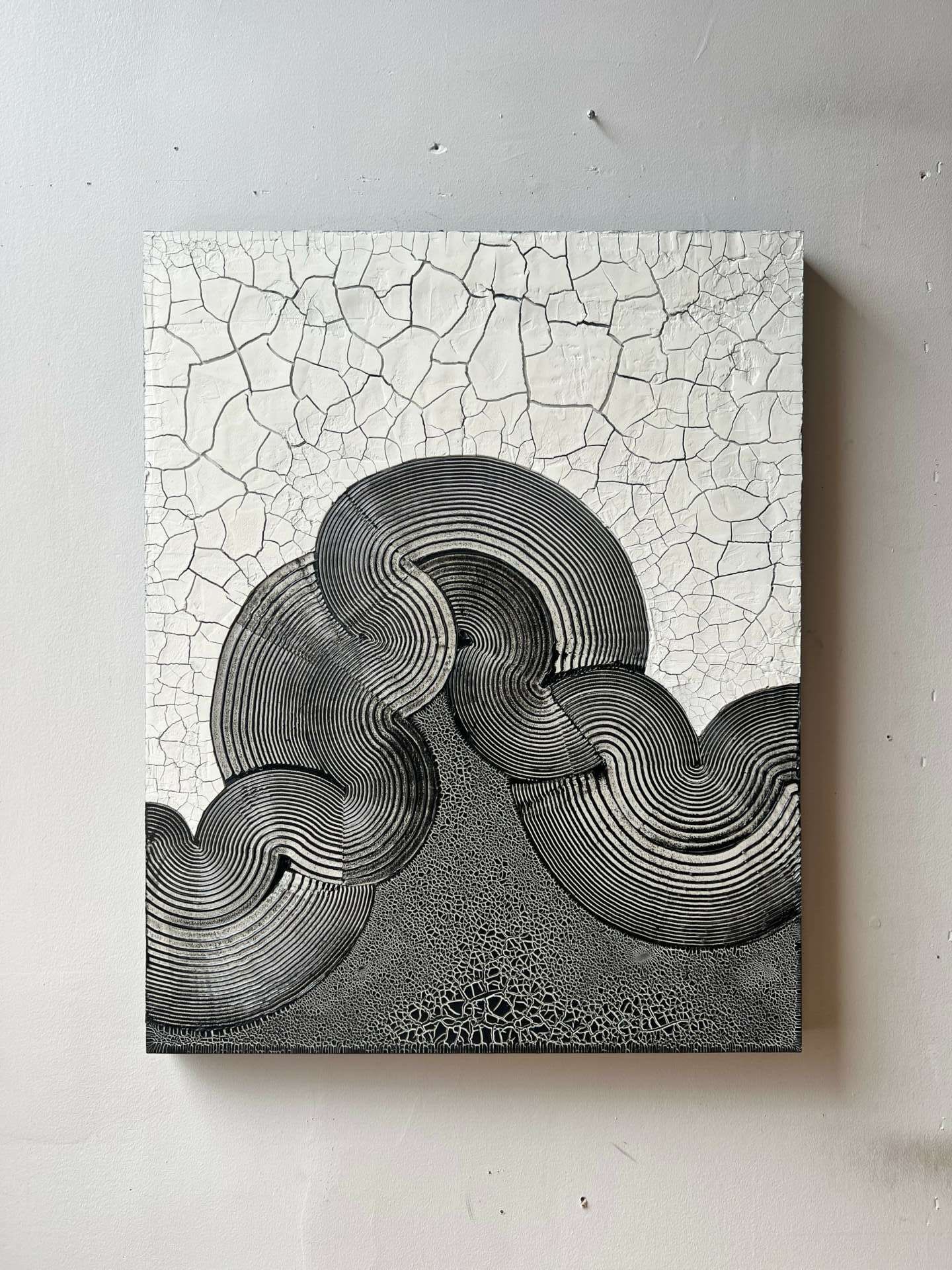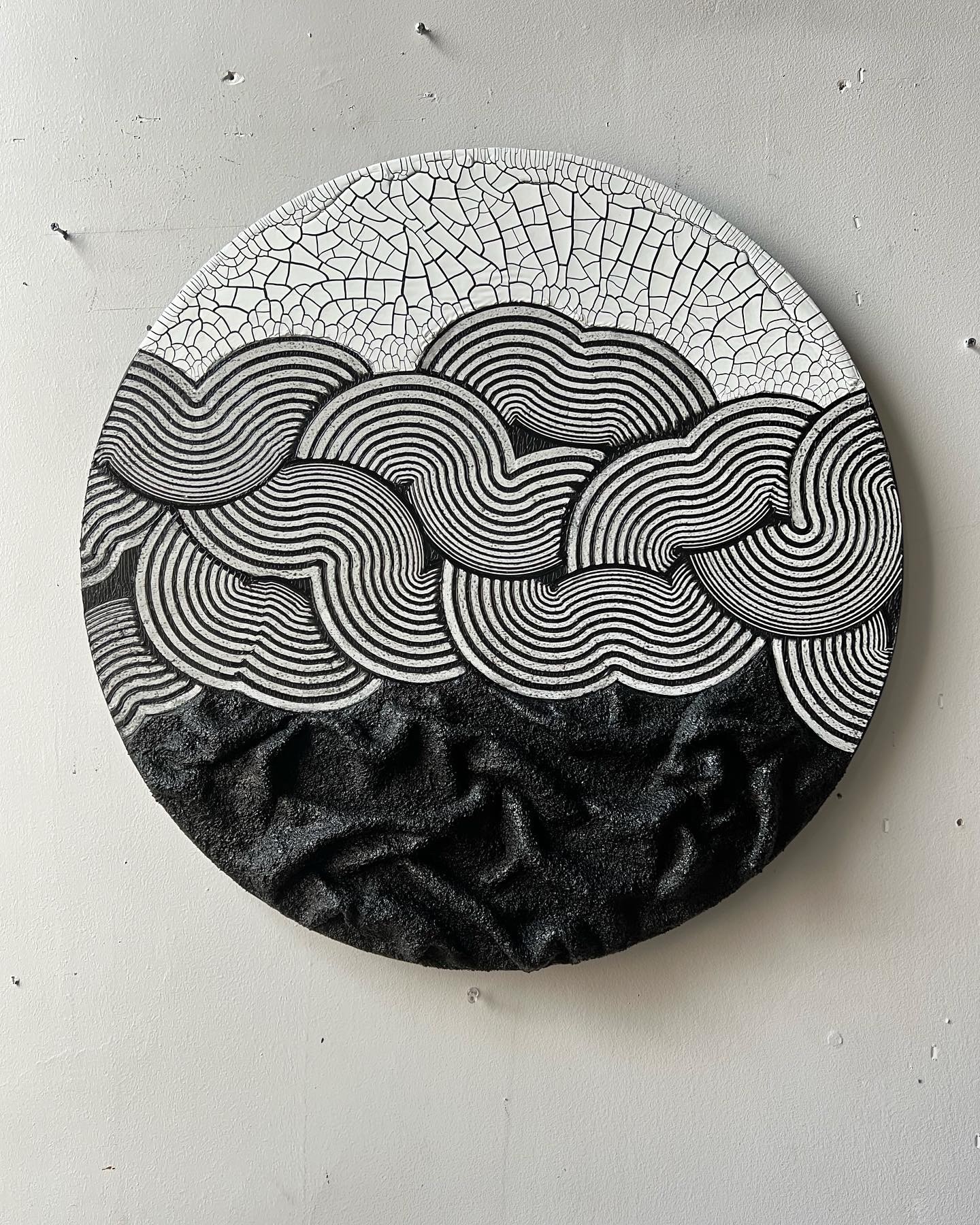We recently connected with Emon Surakitkoson and have shared our conversation below.
Emon, thanks for joining us, excited to have you contributing your stories and insights. What did your parents do right and how has that impacted you in your life and career?
Growing up in Thailand, my parents set examples for me of hard work and community. My parents worked, and made things by hand; they sent me to school where I learned how to schedule and organize. My mother is also a long time volunteer, donating her time to community causes and politics, which has inspired me, as an artist, to foster a creative community and to put effort into giving back to other artists and to helping new artists find platforms and spaces as they develop their own practices.



Great, appreciate you sharing that with us. Before we ask you to share more of your insights, can you take a moment to introduce yourself and how you got to where you are today to our readers
I’m a self taught painter in Washington, DC, working in abstraction. My paintings tend to be large, and I like to play with grand, undulating brush strokes, and expanses of texture, such as with ceramic beads, folded fabric, and cracked paint surfaces. I sell my works to private clients, corporate clients, and I do public art and site specific pieces as well. For many years, I worked in the food and service industry before becoming an artist full time. As an immigrant artist, and one who did not work in a figurative style, I often found it difficult to explain or discuss my work. But by focusing on my craft and challenging myself with new experiments, and by fostering connections with other creatives, I’ve been able to create a studio practice that is connected to the city and that gives me the space to grow and develop.
Do you think there is something that non-creatives might struggle to understand about your journey as a creative? Maybe you can shed some light?
I think many non-artists think that an art practice is about the individual objects that are made and sold. However, for me, a studio practice is more than just units sold and money that is made, it’s also a way to move with freedom and independence and to have a life that is valuable beyond just economics. The economics are integral, of course, but aren’t everything. The practice also gives me a voice and a way to express myself, in a country where I had to otherwise learn the language. This expressive autonomy has a value that is also integral to my happiness as a creative.




What’s the most rewarding aspect of being a creative in your experience?
Setting goals for myself, I only need material success up to a point. Beyond that, having a life where I can enjoy the moments, and can feel like I’m using my mind in a way that gives me satisfaction, is rewarding. Being able to work within a community is also part of this. One aspect is having artist peers, but it’s also finding and working with different businesses that are supportive of the arts; connecting with sponsors who support similar causes; and meeting individuals with different talents who come together to make wonderful things. I don’t have my immediate family in this country, and I’ve been helped along my way by many people. Being in a position where I can now do those things for other artists is very rewarding.
Contact Info:
- Website: emonsurakitkoson.com
- Instagram: emonartdc
- Linkedin: Emon Surakitkoson
Image Credits
Emon Surakitkoson


